Team:TU-Munich/HumanPractice/Media
From 2013.igem.org
Deutsches Museum Munich
We had the chance to introduce the Physco Filter and our iGEM team to the public at the visitors lab at the German Museum of Munich. Green biotechnology is perceived rather negatively in Germany, but the majority of expressed concers relates to applications in agriculture and food. So in addition to presenting our project and answering a lot of interested questions about sythetic biology, we asked people about their views to see if projects like the Physco Filter can bring a different perspective into the public debate about biotechnology.
Because of the Octoberfest, we had a large and very international audience with whom we had very interesting discussions. We had prepared a poster aimed at a larger audience in German language, but we could have needed posters in English, Italian, French, Russian, Chinese and Hebrew as well and had the chance to use all the forgein language skills we had. The feedback we received was much more positive than expected. People complimented our idea and considered this application of green biotechnology as much more feasible due to its thorough biosafety profile.
We really enjoyed this campaign because of all the valuable feedback and the large diversity of input we got. It was very inspiring to meet and talk to all those people and once again, our iGEM activities enriched our views.
PhyscoFilter presentation at the German Museum
Survey on the public perception of biotechnology
The public perception of biotechnology in Germany is traditionally not very positive. But how much do people know about sythetic biology and are red, white and green biotechnology perceived equally postive or negative? On iGEM day Germany, we set out to inform, explain and investigate. How much impact does the pollution of water through pharmaceuticals and hormones have on people´s private life as well as globally according to public opinion? Are projects adressing these problems able to increase the acceptance of sythetic biology? And would people want to use our filter or support its use in public sewage plants?
Those were the results:
Green biotechnology is seen as far more controversial than industrial biotechnology, while medical applications are widely accepted. Most people feel personally concerned by water pollution and also see this problem as highly relevant in a global context. If synthetic biology can offer solutions for problems like these, people would be more likely to aproove of genetic engineering. Nearly two thirds would use a moss filter in their homes and 84% would aproove of its use e.g. for hospital wastewaters. Our project is widely perceived as positive and people felt that our survey and the conversations with us were helpful information.
Our survey booth in the city of Freising
13th Munich Science Days
November 16th to 19th we will be presenting our project at the 13th Munich Science Days. This popular public science fair offers workshops for school classes, public discussions, about 30 presentations and four theme nights, next to a large exhibition, tours and programs for kids.
Media coverage on iGEM 2013 project
Media coverage on iGEM 2012 project after the Jamboree
This article by Aleszu Bajak covered our 2012 project in BeerAdvocate magazine, #72
"A gateway to a lot of Synthetic Biology" - The part about our last years iGEM project is from minute 14.20 on. An interesting video from the beginning to the end by the way.
 "
"



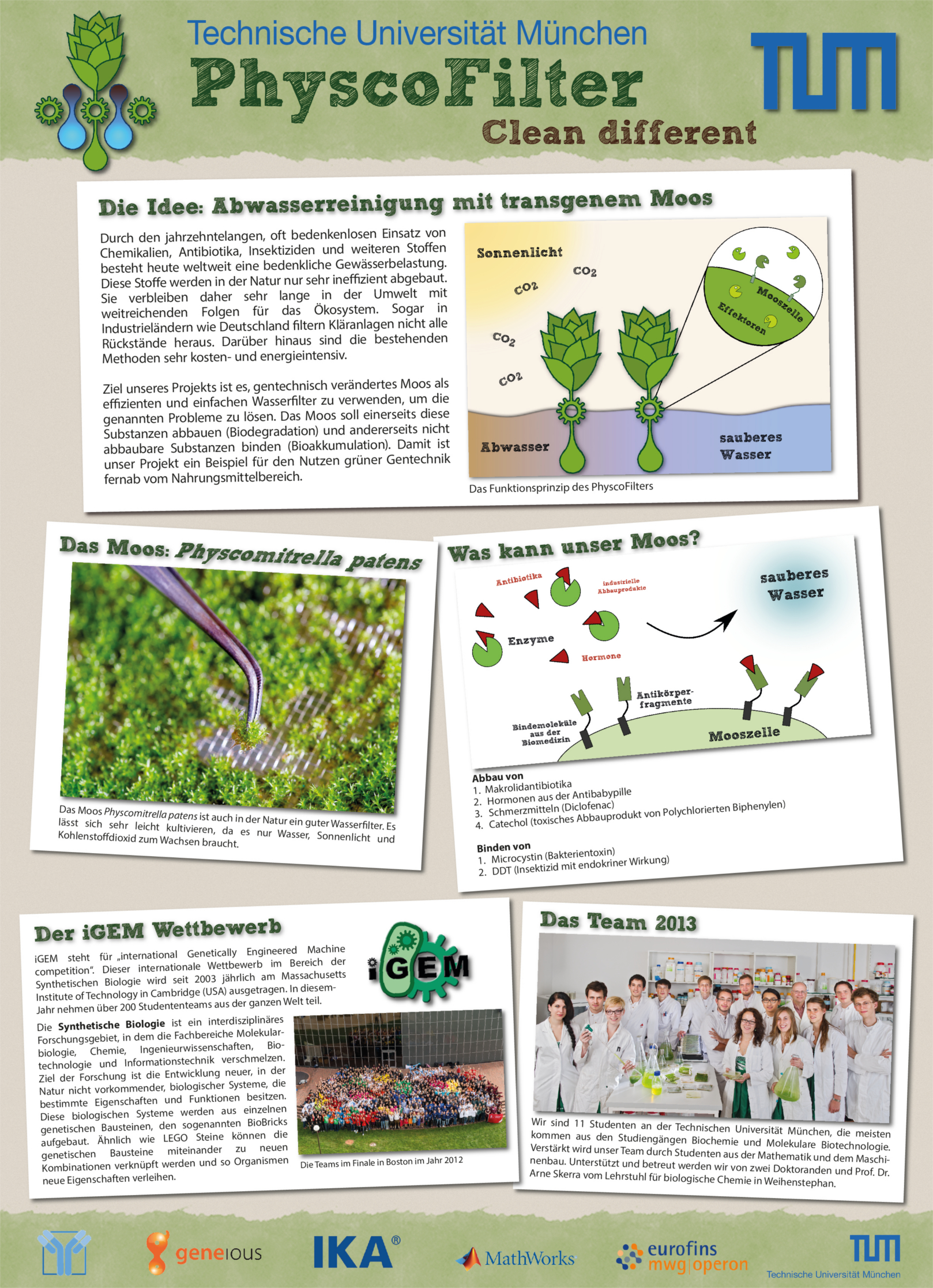
















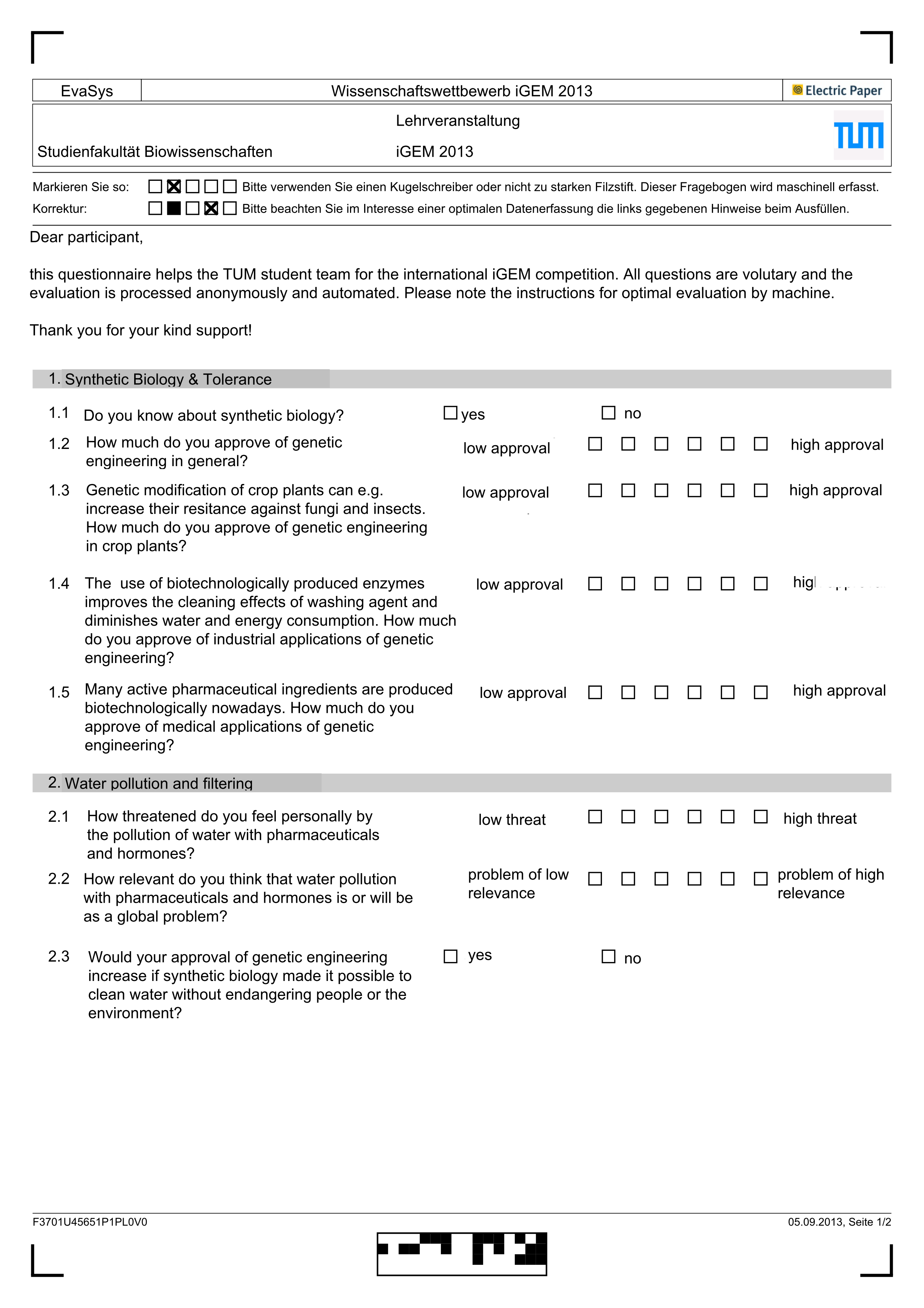
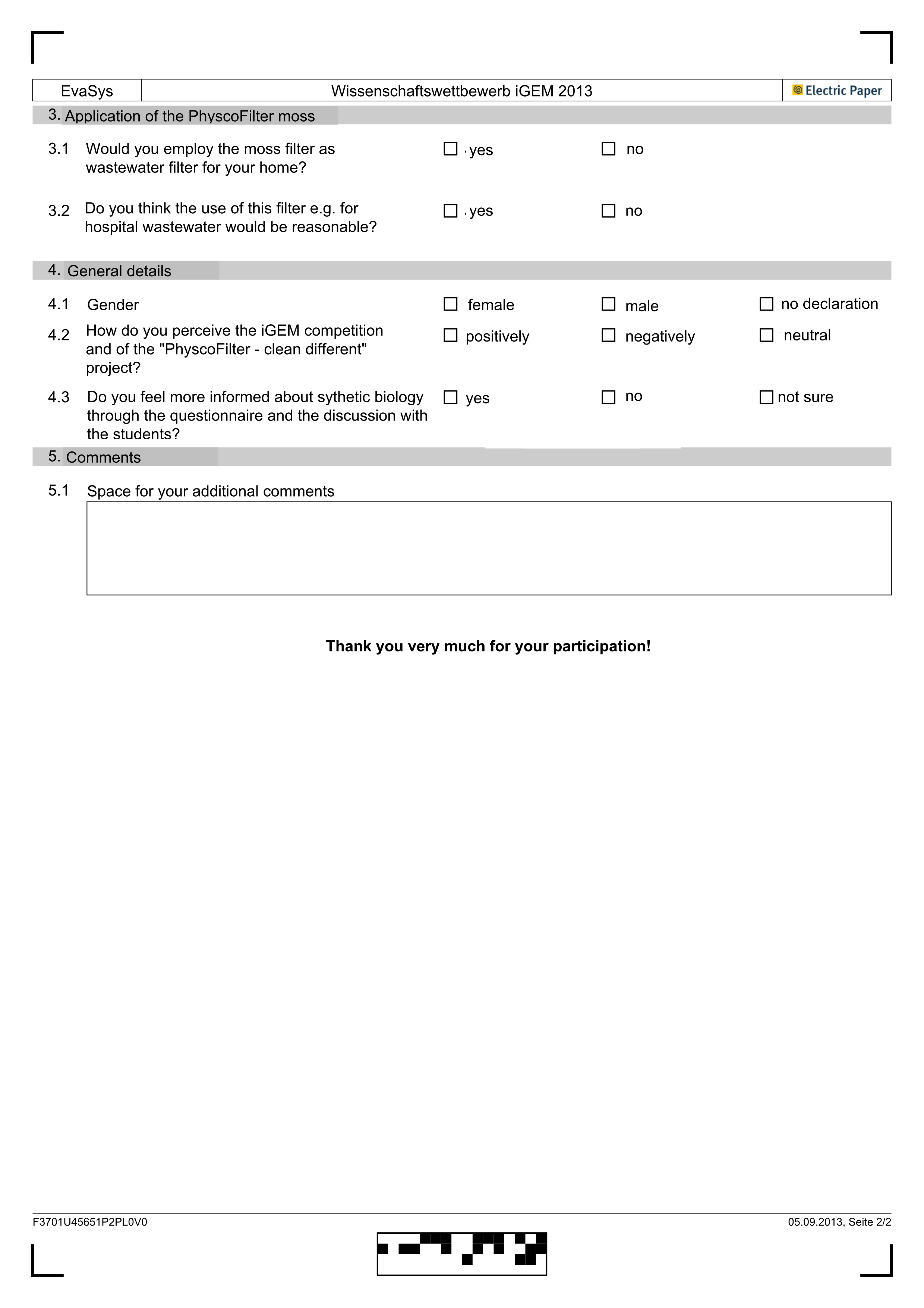
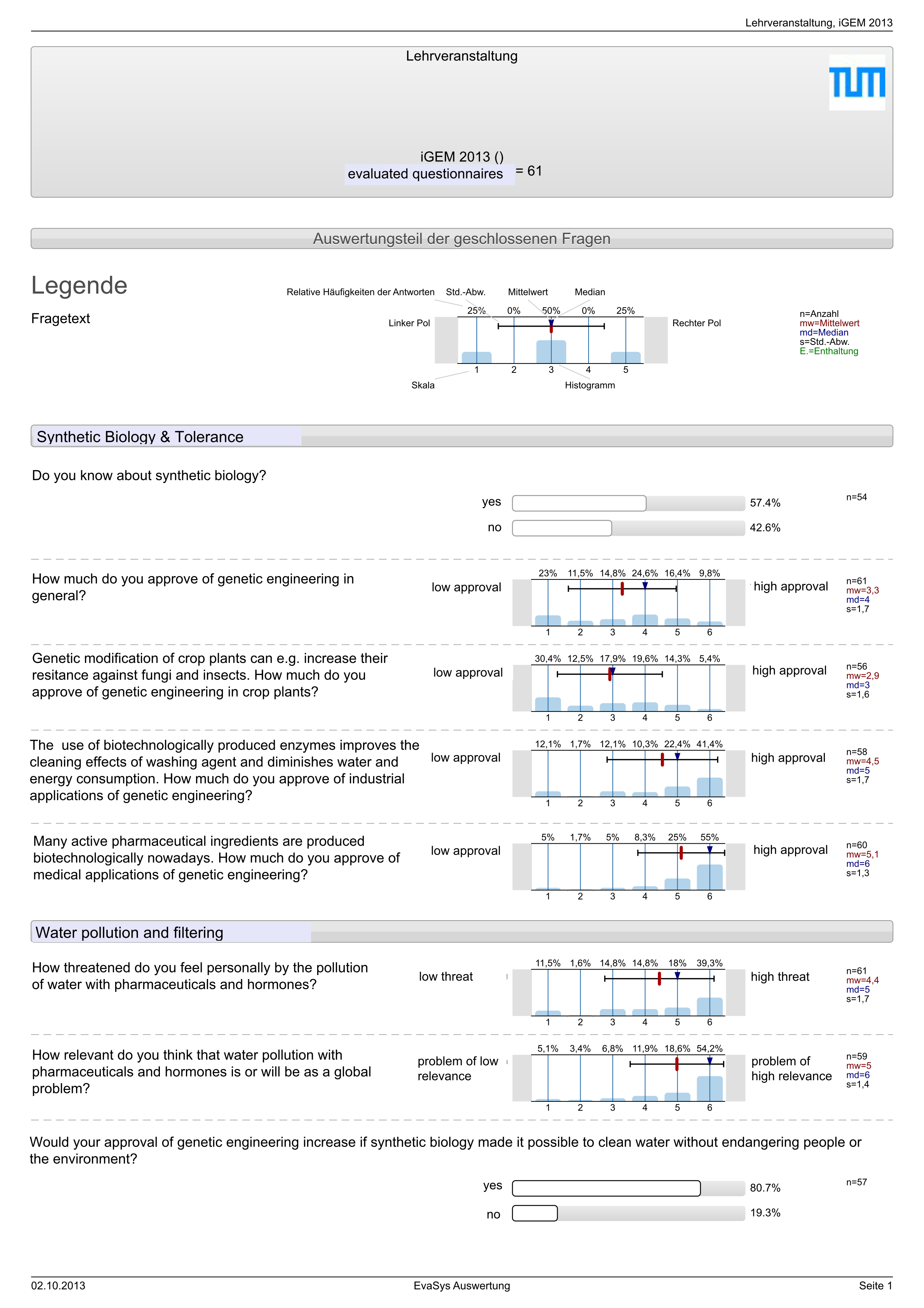
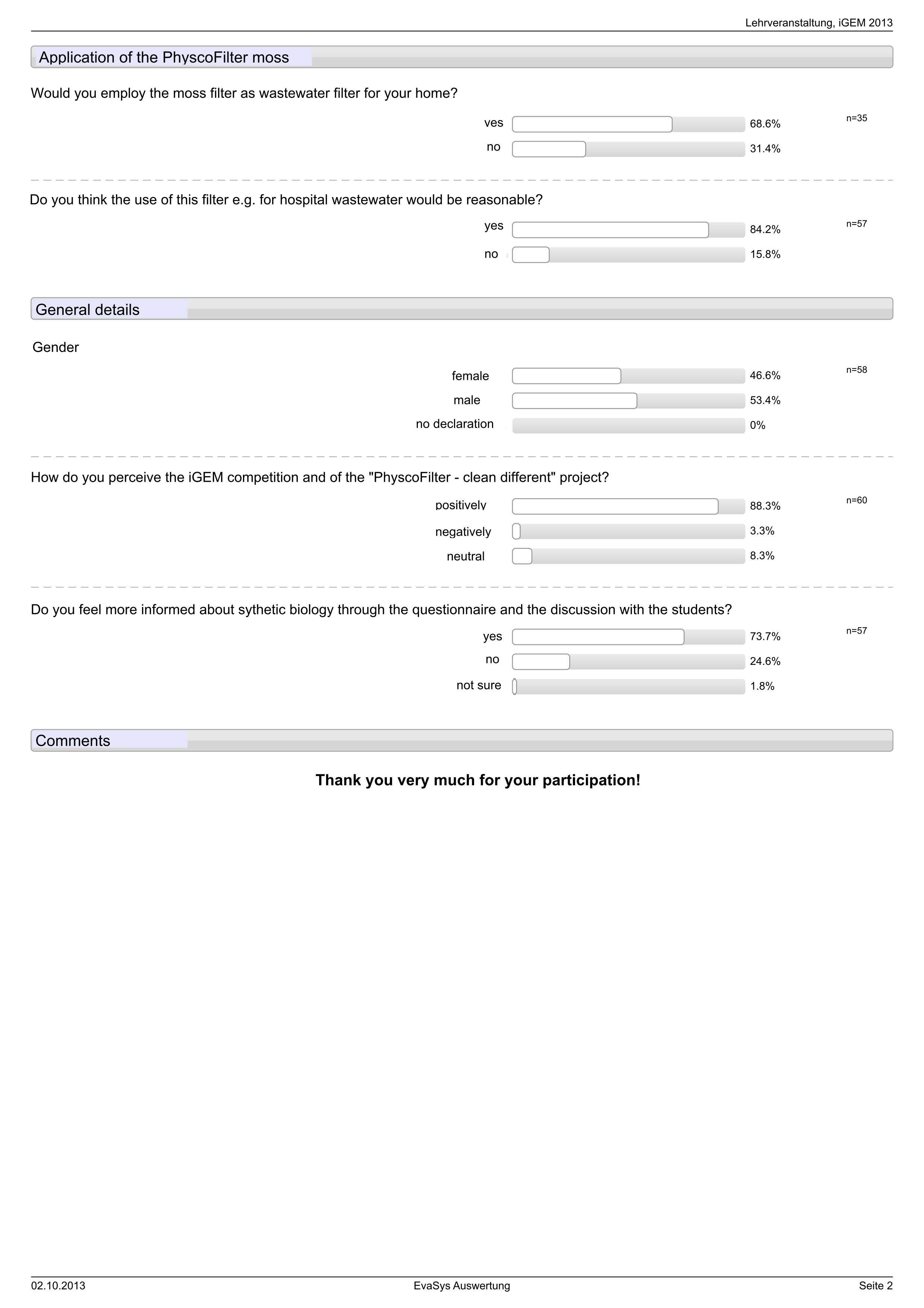










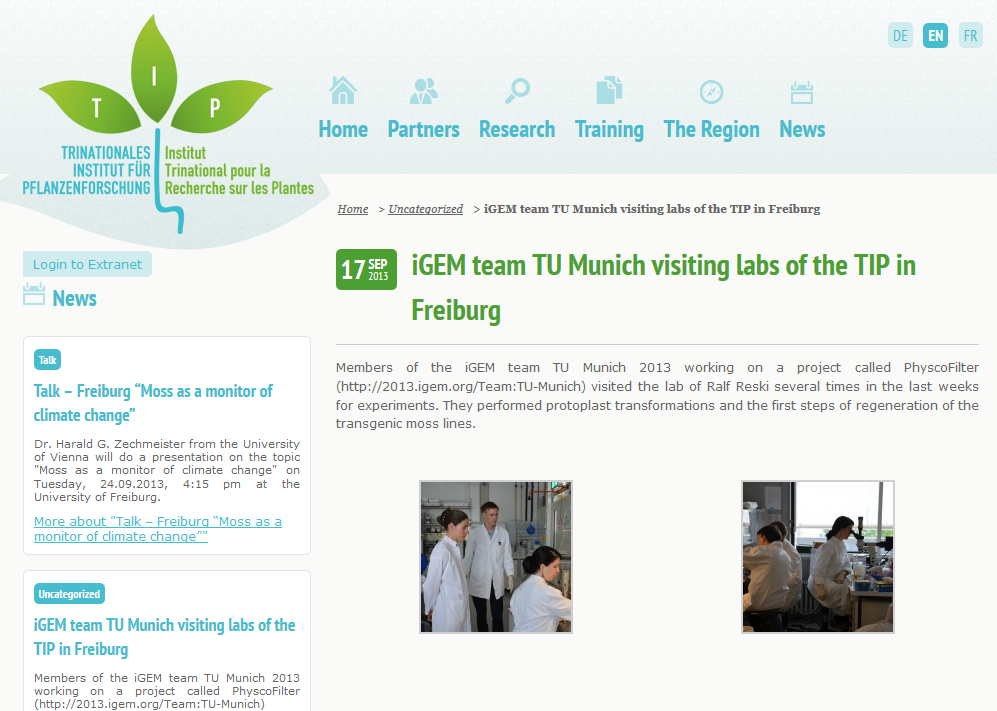
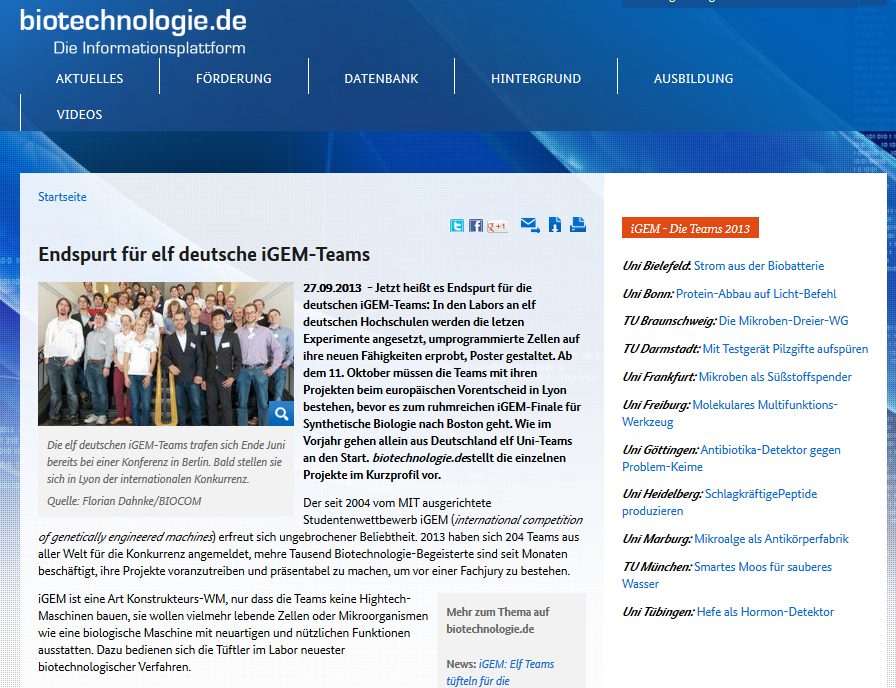
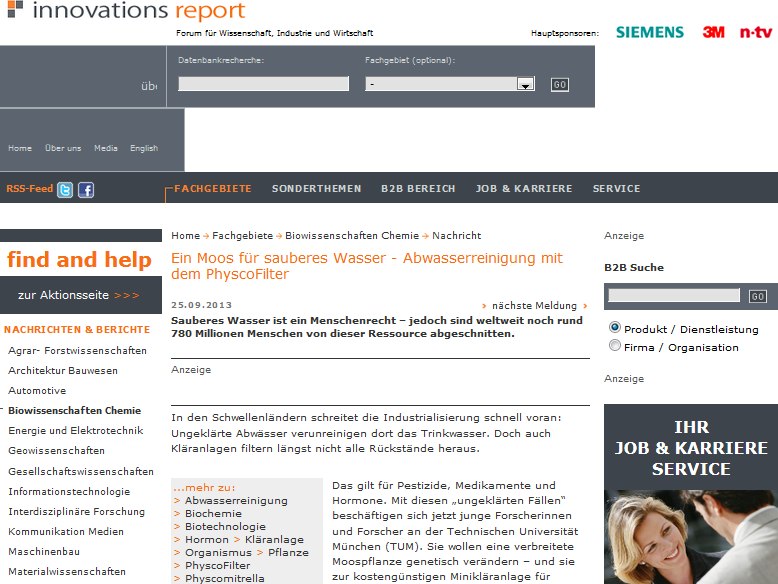
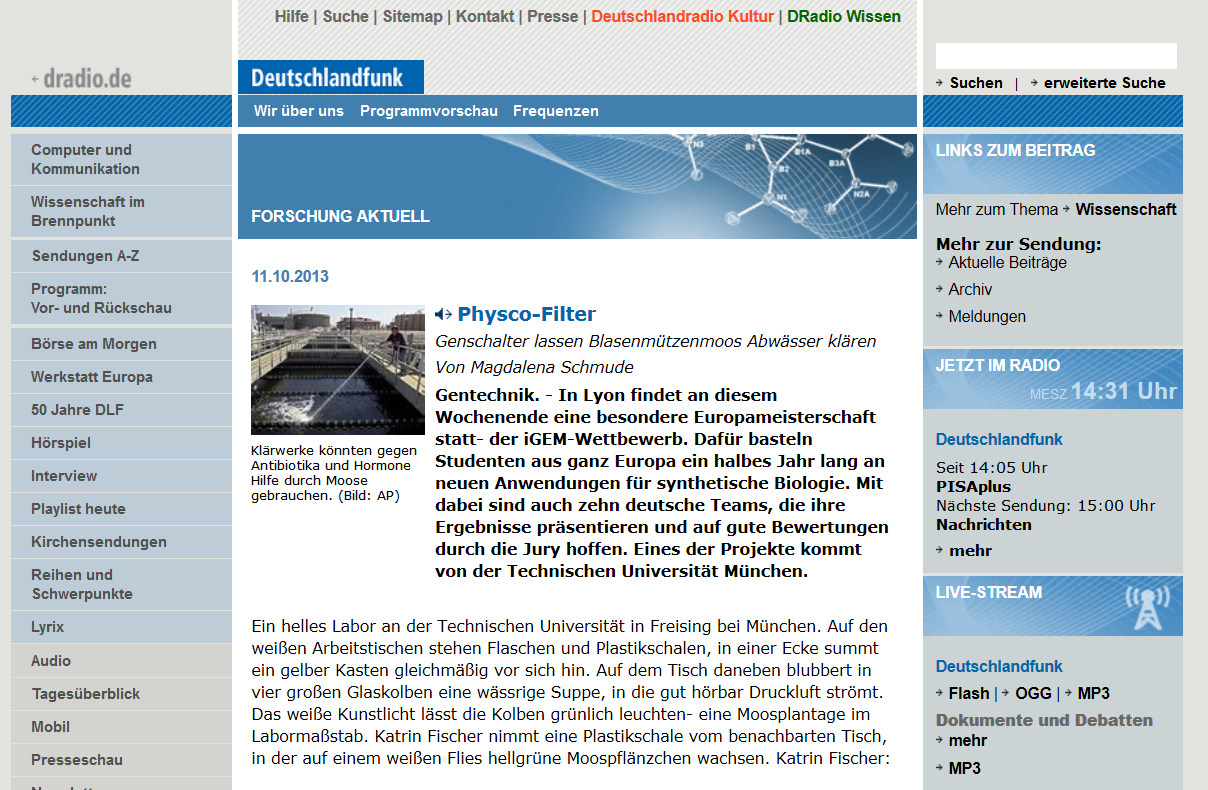
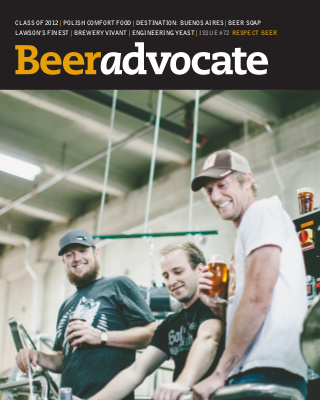
AutoAnnotator:
Follow us:
Address:
iGEM Team TU-Munich
Emil-Erlenmeyer-Forum 5
85354 Freising, Germany
Email: igem@wzw.tum.de
Phone: +49 8161 71-4351